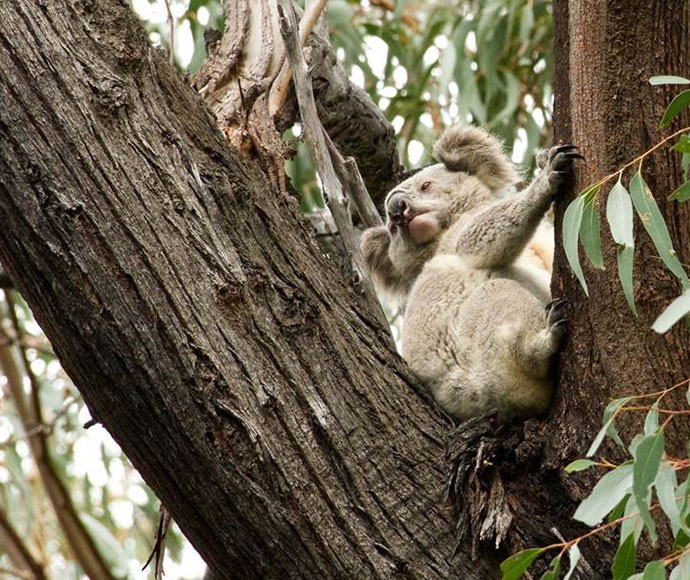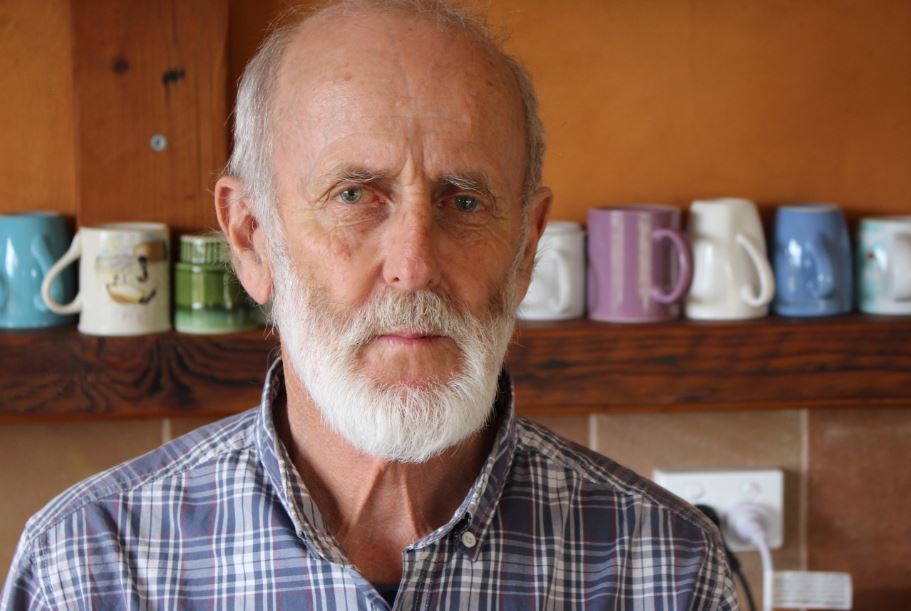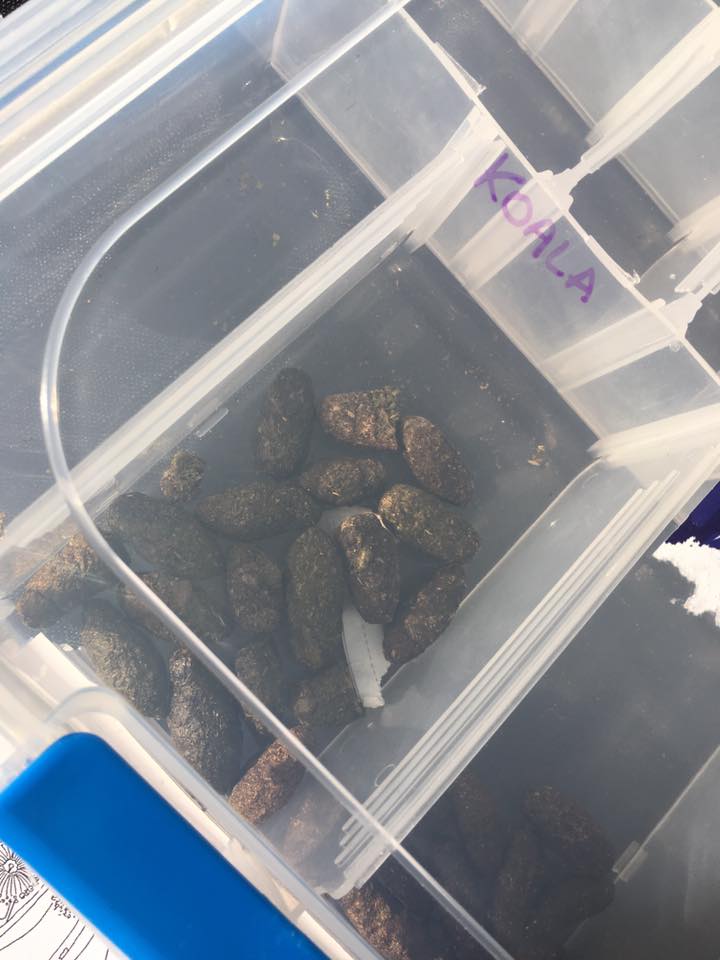
Koala in the Mumbulla Flora Reserve. Photo: Dave Gallen OEH.
You are invited to take part in the next phase of a program that is helping manage and protect a fragile population of Bega Valley koalas.
A koala workshop will be held at The Crossing Land Education Centre in Bermagui this Saturday (August 11). The main purpose of the workshop is to discuss, plan, and provide training for the volunteer contribution to the local koala monitoring program.
This ‘on your hands and knees’ citizen science work has been taking place in the stunning forests between Tathra and Bermagui for almost a decade and is responsible for a lot of what we know about this fragile population of no more than 60 koalas.
The next phase of the program headed by the NSW Office of Environment and Heritage (OEH) takes in the landscape between Cuttagee Creek and the Bermagui River, south-west of Bermagui.
Chris Allen is the OEH Threatened Species Officer who leads this search for the holy grail of local wildlife with a Yoda like wisdom.
“You select your nearest 30 trees and scratch around in the forest leaf litter looking for koala pellets,” he explains.
“And just to give you an indication of the chances of success; we’ve looked at something like 30,000 trees and 10% of the sites searched have had koala evidence.
“What it means is there is a lot of work in searching for koala pellets and a lot of excitement when you find some!”

Chris Allen, OEH Threatened Species Officer. Photo: Ian Campbell.
The information collected to date has been fed into the NSW Government’s Koala Strategy; wildfire is the biggest threat according to Mr Allen and a key part of the strategy.
Managing fuel loads within koala habitats is central to reducing the risk and safeguarding the current population, as Mr Allen says when numbers are so small, “every koala counts.”
A slower, gentler, less intense approach to hazard reduction burns within koala geography is what Mr Allen suggests.
“An important part of that is cultural burning and the role and contribution the Aboriginal community can make here,” he says.
“We have a very good partnership with Aboriginal people; cultural burning has great potential for the enhancement of koala habitat.”
The sort of wildfire the community and the landscape witnessed on March 18 is the nightmare that drives further research and management.
On that day 65 families between Bega and Tathra lost their home and parts of known koala forest north-west of Tathra were stripped bare by hungry, fast flames.
“We’ll certainly be monitoring just how that habitat responds to the fire event, that will be an important part of our work over the next 12 months,” Mr Allen says.
Thankfully, it appears no koalas were killed on that day.
LIVE – talking koalas with Chris Allen, Threatened Species Officer with the NSW Office of Environment and Heritage.You are invited to take part in the Bega Valley koala monitoring program this spring, it all starts with a workshop at The Crossing Land Education Centre on August 11.Contact – http://thecrossing.thebegavalley.org.au/contact-the-crossing/Ian
Posted by About Regional on Thursday, July 26, 2018
This population is just hanging on and manages to avoid danger at every turn – from cars and camper vans on the Tathra – Bermagui Road to wildfire – but they need people at their back.
Saturday’s workshop is a great opportunity to play a hands-on role in protecting and rebuilding the Bega Valley koala population.
The workshop is being organised by The Crossing and OEH’s Saving Our Species Program. It will run from 9 am to 4 pm and will include:
• How we are monitoring the koala population and how volunteers can contribute;
• What we know about distribution, habitat preferences, genetics, and disease;
• Threats to the population and how we are trying to manage these;
• Rehabilitating koala habitat;
• Cultural burning and its contribution to koala conservation;
• The NSW Koala Strategy and what’s in it for koalas locally?
There will also be a scat/pellet/poo and eucalypt leaf/gum nut display to help with identification, as well as a hearty morning tea and lunch.
Fieldwork training will involve walking a small distance to one of the grid-sites and undertaking a search for koala evidence. Participants will also visit one of The Crossing’s habitat rehabilitation plots.

Koala pellets, AKA poo. Photo: Ian Campbell.
No previous experience in koala surveys is needed.
If you would like to come, pack your gardening gloves and RSVP to thecrossing@thebegavalley.org.au with the message ‘Koala Information Workshop’ in the subject line of your email.
If you can’t make it to this Saturday’s (August 11) workshop but would still like to join the volunteer survey on another day, email The Crossing.
*This story first appeared on About Regional












